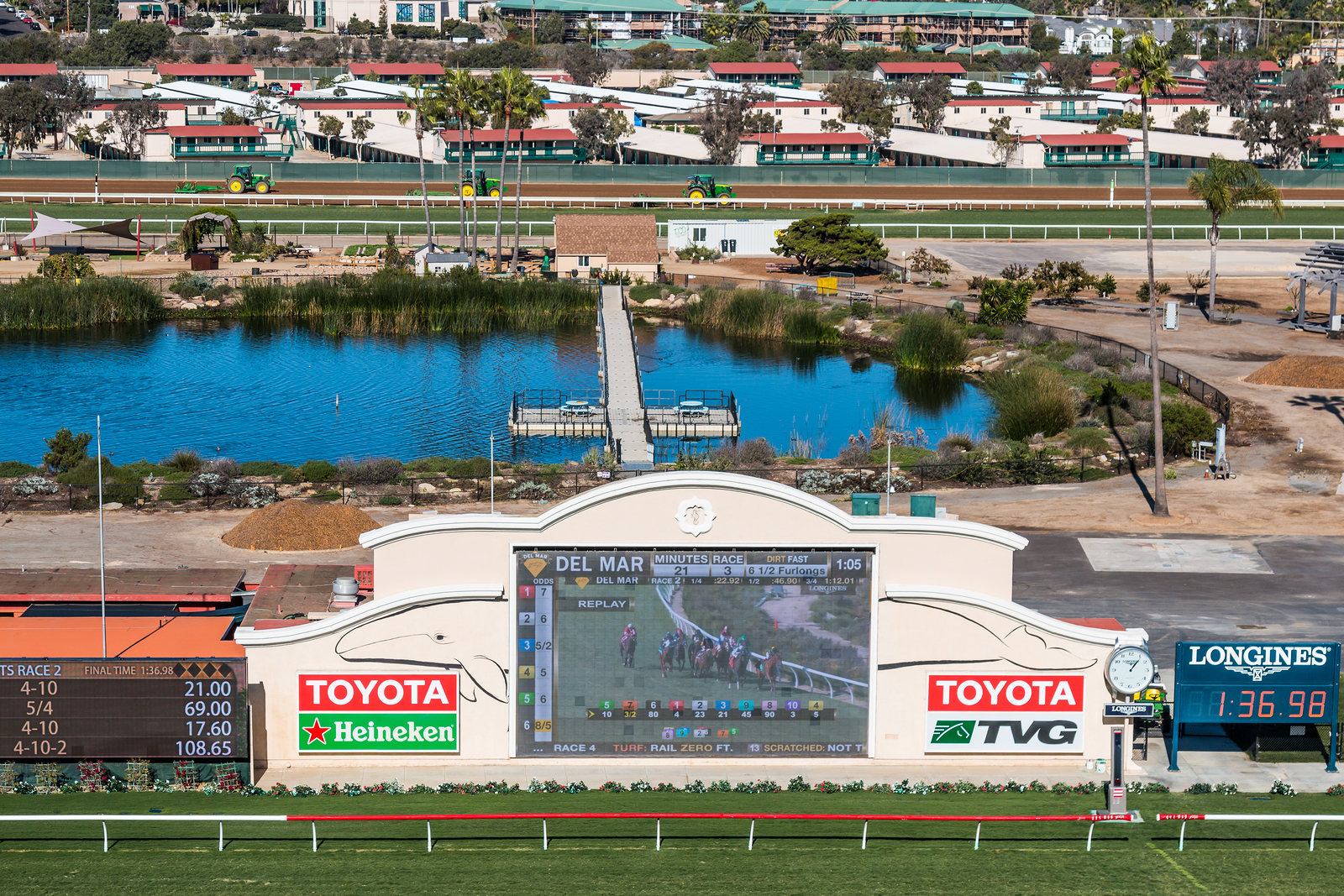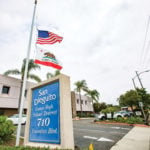DEL MAR – For decades, the Del Mar Fairgrounds would typically be spending this time of year readying for its famous San Diego County Fair and summer horse race meets.
But with COVID-19 among us, 2020 will look vastly different for the 340-acre, state-owned property. Facing a 90% cut in revenue streams with the cancellation of all events – including the San Diego County Fair – fairgrounds staff are worried they won’t be able to keep their doors open.
“If we don’t have any money, what are we going to do?” said Del Mar Fairgrounds CEO Tim Fennell.
The 22nd District Agricultural Association (DAA) – the fair’s operating body – is imploring the governor to approve critical emergency funds to the tune of $20 million in order to stay open.
Fennell says such funds would likely get the fairgrounds through the rest of the year, assuming they will not be able to hold any large events in 2020.
And without such emergency funding?
“In the next three to four weeks, we’re going to be at a financial crossroads,” said Fennell.
The fairgrounds’ business model relies almost entirely on revenue from large gatherings. Of the 22nd DAA’s $87 million annual revenues, 58% is derived from the annual San Diego County Fair. Food and beverage from horse racing contribute another 21%.
The fairgrounds hosts more than 300 events per year, including trade shows, concerts, weddings and sporting events.
All such gatherings have been canceled since the start of the crisis in March, and this reality will likely continue through summer – with no clear endpoint in sight. The 22nd DAA Board announced the postponement of the fair in early April after Gov. Gavin Newsom said the possibility of mass gatherings or sporting events in the summer was “unlikely.”
With a $1.6 million monthly payroll to maintain, a $74 million debt to pay off, and no sources of revenue on the horizon, the fairgrounds is facing quite the uphill battle.
According to its April 27 letter requesting funding from the state, the association will no longer be able to pay its 156 state civil service employees or operating expenses by the end of May without assistance.
The 22nd DAA isn’t currently considering laying off or furloughing permanent full-time employees, though they were able to reduce their temporary and seasonal workforce by 63% at the outset of the crisis.
Fennell said furloughing state civil service employees can take at least five months – whereas a privately-owned fairgrounds like that of Los Angeles would be able to do so in a number of days.
“We certainly want to avoid that at all costs,” he said.

Despite operating under such state-imposed limitations, the 22nd DAA doesn’t receive any tax revenue or budget allocations from the state – what Fennell says is a common misconception regarding the fairgrounds.
Instead, the 22nd DAA functions as a self-funded entity, and runs more like a business than a section of government. Yet, along with other DAA’s in the state, the fairgrounds is considered part of state’s “critical infrastructure” and emergency response network.
For example, the fairgrounds operates as an official evacuation site in the event of a local crisis. San Diego has seen this before during wildfire season – Fennell said the property housed 2,200 people and another 2,600 animals during the California wildfires in 2007.
Fennell worries the fairgrounds might not be able to stay open to provide such assistance when wildfire season comes around again.
“We need to be in a position where we can service the needs of the people of San Diego,” he said.
With their request for assistance still up in the air, Fennell said staff are brainstorming how to keep the fairgrounds running for now – which will involve cutting as many expenses as possible, including renegotiating its bond debt.
The 22nd DAA currently has less than $5 million in cash at its disposal– an amount that is quickly draining due to expenses vastly exceeding revenues.
Staff are starting to look at smaller events for the fall – contingent on the trajectory of the pandemic. At the 22nd DAA Board’s April meeting, Fennell brought up the idea of hosting a festival for a few weekends in the fall with music, food and rides – although such possibilities are “to be determined.”
In the interim, the fair is still bringing in some revenue from its RV park, car rental spaces and golf driving range – which opened up last week. And although the word hasn’t been finalized, Fennell said the race track will keep horses running this summer, but with offsite betting only – which will allow the 22nd DAA to benefit from the handle (the total amount of money bet on a single race, day or season.)
In light of a shaky and uncertain future, Fennell is hoping San Diego residents will reach out to their local and state representatives to support funding for the fairgrounds.
“We are self-funded, we are not receiving tax revenue…and we do not qualify for federal loans because we’re a state agency,” said Fennell. “I don’t want us to fall through the cracks.”





1 comment
Would the Fairgrounds be interested in renting one of their facilities for a local theater group’s productions this summer/fall.
Comments are closed.